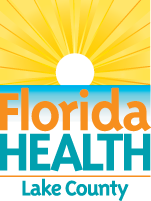National Black HIV/AIDS Awareness Day
February 05, 2015
The Florida Department of Health in Lake County will offer Residents Free Testing in Observance of National Black HIV/AIDS Awareness Day
Lake County – The Florida Department of Health in Lake County will be offering free HIV Testing on Friday, February 6, 2015 from 1 PM to 3pm at the Umatilla Health Center located at 249 E Collins Street, Umatilla, FL. No appointments necessary.Observed Friday, February 6, 2015 National Black HIV/AIDS Awareness Day (NBHAAD) is a national HIV/AIDS testing and treatment community mobilization initiative designed to encourage blacks across the nation to get educated, get tested, get involved, and get treated around HIV/AIDS.
Unless the course of the epidemic changes, at some point in their lifetime, an estimated 1 in 16 black men in 1 in 32 black women will be diagnosed with HIV infections.
According to the www.cdc.gov website, Black/African Americans continue to experience the most severe burden of HIV compared with other races and ethnicities.
Florida has been heavily impacted by the HIV/AIDS epidemic. The state continues to rank third in the nation in the cumulative number of AIDS cases (126,581 in 2013) and second in the nation in the cumulative number of HIV cases (49,058 in 2013). The Florida Department of Health estimates that approximately 130,000 individuals are living with HIV disease in Florida. Of those people living with the HIV disease, 49% are black, 29% are white, 20% are Hispanic and 2% unknown. Men represent 70% of the cases. Persons over the age of 45 years represent 60%.
The Florida Department of Health has developed a comprehensive program for preventing the spread of HIV/AIDS and for providing care and treatment to those already infected. This comprehensive approach includes HIV surveillance, education, prevention, counseling, testing, care and treatment.
For more information on HIV/AIDS please visit www.cdc.gov or lake.floridahealth.gov or call (352) 771-5547.





Connect with DOH